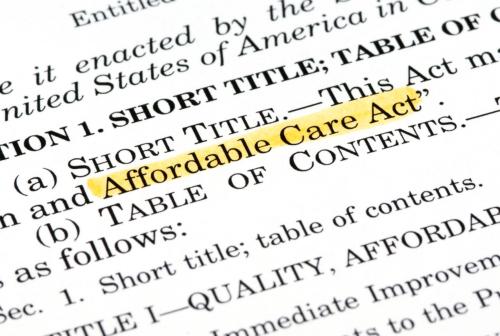It’s time to spend less money on health care for older Americans. There, I’ve said it. But I’m not saying this because I’m some self-centered millennial – I’m turning 69 this summer. I’m saying it because, for older Americans especially, our health system has become a giant, expensive repair shop. It’s not a set of programs and supports to help us age the best way we can – mentally as well as physically.
Here’s what I mean. Thanks to American physicians’ training and financial incentives, the first thing most doctors will ask an elderly patient is “What’s the matter with you?” not “What matters to you?” In other words, they focus on the ailments they can try to fix with expensive technology, surgery or drugs, rather than ask what is important to you and how can they help enhance the quality of your life.
If you do have a medical problem, it is not always best to concentrate exclusively on fixing it. Sometimes it is better to avoid “cures” that have severe side-effects that can reduce your quality of life. And sometimes the physician should really be calling a local social service agency or volunteer organization to figure out how you can continue living close to your friends of all ages, rather than steering you to a well-equipped nursing home that only houses seniors.
It’s not that physicians are bad people. It’s that for multiple reasons we tend to “over medicalize” aging in America by focusing too much on repairing people and not enough on preventive actions or maintenance care. For instance, Medicare and also Medicaid (for which low-income seniors qualify) will spend tens of thousands of dollars to repair a hip fracture, or to cover the cost of nursing home care. But there are few public resources available to modify a home to reduce the likelihood of ever having a fall, such as by replacing a bathtub with a walk-in shower.
One reason for this pattern is our tendency as Americans to want to throw money at fixing problems once they become crises rather than to take prudent steps earlier to avoid the problem. Some would say that explains many of our foreign policy mishaps. It certainly explains our infrastructure problems, from poisoned water in Flint, Michigan, to deteriorating bridges on our interstates.
But there’s another key reason. Unlike most other major countries, we spend a lot on medical care and proportionately much less on a range of other services, from transportation and in-home care to nutrition assistance – ongoing services that can both improve quality of life and reduce the likelihood of later medical problems. Other industrialized countries spend an average of roughly $2 in social services for every $1 on health care. We spend about 90 cents per health dollar. Sure, we can do medical wonders, but for many older Americans the balance is wrong. Too much expensive surgery and drug therapy. Too little on making aging easier and safer.
So what can we do to focus more on “what matters?” rather than on “what’s the matter?”
For starters we can encourage physicians and hospitals that look beyond their office walls at the things needed for a better life. The Affordable Care Act – or Obamacare – did take a step in this direction by penalizing hospitals if certain elderly discharged patients are readmitted within 30 days. The result? Hospitals are starting to look at improving the home safety of elderly patients rather than functioning simply as a repair shop. That could mean fewer falls and other incidents resulting in calls to 911.
We also need to encourage physicians to spend more time talking with older patients about their life goals and planning for possible health setbacks, just as prudent Americans talk to planners about their financial future. Medicare is helping this by now paying physicians for conversations about end-of-life planning. But Medicare and private insurance ought to cover time spent in much broader conversations about patients’ goals in aging. Perhaps even more important, medical schools need to provide much better training for physicians on how to conduct those conversations – today few physicians do that well.
The other step needed is to give government agencies and programs much greater leeway to “braid” together health, housing, social service and other funds so that we can age more safely – and happily – in our community. If we did that, we’d likely end up spending much less on medical procedures and much more on other things that actually improve physical and mental health.
In this election year, those are “Medicare cuts” all seniors should embrace.
Editor’s note: This piece originally appeared in Inside Sources.



Commentary
Op-edSpend less on seniors’ health care!
January 28, 2016